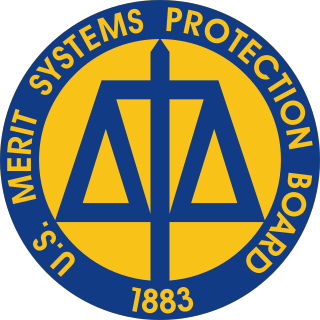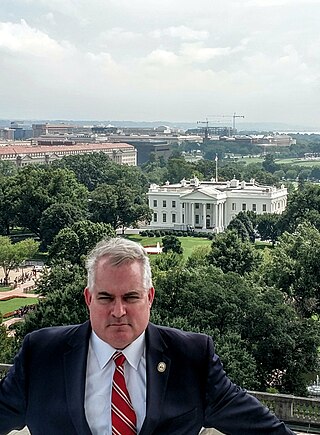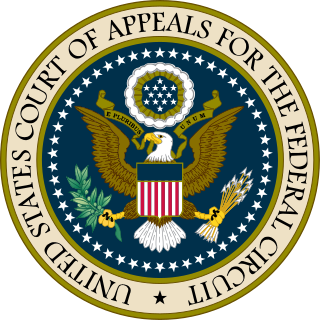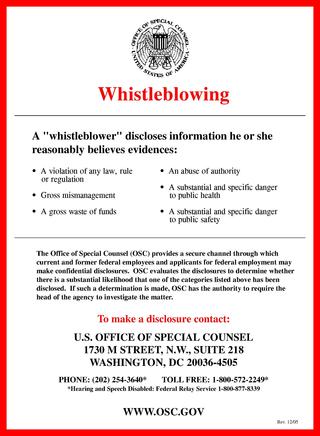
The False Claims Act of 1863 (FCA) is an American federal law that imposes liability on persons and companies who defraud governmental programs. It is the federal government's primary litigation tool in combating fraud against the government. The law includes a qui tam provision that allows people who are not affiliated with the government, called "relators" under the law, to file actions on behalf of the government. This is informally called "whistleblowing", especially when the relator is employed by the organization accused in the suit. Persons filing actions under the Act stand to receive a portion of any recovered damages.
Whistleblowing is the activity of a person, often an employee, revealing information about activity within a private or public organization that is deemed illegal, immoral, illicit, unsafe or fraudulent. Whistleblowers can use a variety of internal or external channels to communicate information or allegations. Over 83% of whistleblowers report internally to a supervisor, human resources, compliance, or a neutral third party within the company, hoping that the company will address and correct the issues. A whistleblower can also bring allegations to light by communicating with external entities, such as the media, government, or law enforcement. Some countries legislate as to what constitutes a protected disclosure, and the permissible methods of presenting a disclosure. Whistleblowing can occur in the private sector or the public sector.

The United States Office of Special Counsel (OSC) is a permanent independent federal investigative and prosecutorial agency whose basic legislative authority comes from four federal statutes: the Civil Service Reform Act, the Whistleblower Protection Act, the Hatch Act, and the Uniformed Services Employment and Reemployment Rights Act (USERRA). OSC's primary mission is the safeguarding of the merit system in federal employment by protecting employees and applicants from prohibited personnel practices (PPPs), especially reprisal for "whistleblowing." The agency also operates a secure channel for federal whistleblower disclosures of violations of law, rule, or regulation; gross mismanagement; gross waste of funds; abuse of authority; and substantial and specific danger to public health and safety. In addition, OSC issues advice on the Hatch Act and enforces its restrictions on partisan political activity by government employees. Finally, OSC protects the civilian employment and reemployment rights of military service members under USERRA. OSC has around 140 staff, and the Special Counsel is an ex officio member of Council of Inspectors General on Integrity and Efficiency (CIGIE), an association of inspectors general charged with the regulation of good governance within the federal government.
The National Security Whistleblowers Coalition (NSWBC), founded in 2004 by former FBI translator Sibel Edmonds in league with over 50 former and current United States government officials from more than a dozen agencies, is an independent, nonpartisan alliance of whistleblowers who have come forward to address weaknesses of US security agencies.

The Merit Systems Protection Board (MSPB) is an independent quasi-judicial agency established in 1979 to protect federal merit systems against partisan political and other prohibited personnel practices and to ensure adequate protection for federal employees against abuses by agency management.

The Surface Transportation Assistance Act of 1982 was a comprehensive transportation funding and policy act of the United States Federal Government, 96 Stat. 2097. The legislation was championed by the Reagan administration to address concerns about the surface transportation infrastructure. The Act contained Title V, known as the Highway Revenue Act of 1982, which added five cents to the per gallon gas tax, of which four cents was dedicated to restore interstate highways and bridges, and one cent for public transit. The Act also set a goal of 10 percent for participation of disadvantaged business enterprises in federal-aid projects.

Kohn, Kohn & Colapinto is a Washington, D.C.-based international whistleblower rights law firm specializing in anti-corruption and whistleblower law, representing whistleblowers who seek rewards, or who are facing employer retaliation, for reporting violations of the False Claims Act, Foreign Corrupt Practices Act, Dodd-Frank Wall Street Reform, Sarbanes-Oxley Acts, Commodity and Security Exchange Acts and the IRS Whistleblower law.
The Government Accountability Project (GAP) is a nonprofit whistleblower protection and advocacy organization in the United States. It was founded in 1977.

Robert J. MacLean is a former United States Federal Air Marshal and whistleblower.
The National Whistleblower Center (NWC) is a nonprofit, nonpartisan, tax exempt, educational and advocacy organization based in Washington, D.C. It was founded in 1988 by the lawyers Kohn, Kohn & Colapinto, LLP. As of June 2021, Siri Nelson is the executive director. Since its founding, the center has worked on whistleblower cases relating to environmental protection, nuclear safety, government and corporate accountability, and wildlife crime.
The Intelligence Community Whistleblower Protection Act of 1998, amending the Central Intelligence Agency Act of 1949 and the Inspector General Act of 1978, sets forth a procedure for employees and contractors of specified federal intelligence agencies to report complaints or information to the United States Congress about serious problems involving intelligence activities.

The Department of Defense Whistleblower Program in the United States is a whistleblower protection program within the U.S. Department of Defense (DoD) whereby DoD personnel are trained on whistleblower rights. The Inspector General's commitment fulfills, in part, the federal mandate to protect whistleblowers. It also administers the Defense Intelligence Community Whistleblower Protection Program (DICWP), as a sub-mission for the intelligence community. The Inspector General's Defense Criminal Investigative Service also conducts criminal investigations which rely, in part, on Qui Tam relators.

Daniel P. Meyer is an attorney admitted in the District of Columbia and is currently the Managing Partner of the Washington D.C. Office of Tully Rinckey, PLLC, an international law firm headquartered at Albany, New York, and co-founded by Mathew Tully and Greg Rinckey.

Huffman v. Office of Personnel Management, 263 F.3d 1341 is a decision by the United States Court of Appeals for the Federal Circuit addressing a two decade-old conflict between the United States Congress and the U.S. Court of Appeals for the Federal Circuit over the depth of whistleblower protection available to federal civilian employees covered by the Whistleblower Protection Act of 1989. The discourse revolves around the meaning of the word 'any'.
The Defense Intelligence Community Whistleblower Program (DICWP) is a sub-mission of the United States Department of Defense Whistleblower Program. In administering the DICWP, the Office of the Inspector General, U.S. Department of Defense (DoDIG) balances the competing national security and separation of powers interests raised by whistleblowing within the Defense Intelligence Community.The DoDIG provides a safe, authorized conduit for Defense Department whistleblowers to disclose classified information. The Inspector General also has authority to investigate whistleblowing reprisal allegations filed by civilian and military members of the Defense Intelligence Community. It therefore accepts the disclosures and provides source protection for those providing the information. The Department of Defense funds and supervises much of the Republic's intelligence gathering. DoD IG accordingly provides protection to a large number of civilian and military intelligence personnel.

A whistleblower is a person who exposes any kind of information or activity that is deemed illegal, unethical, or not correct within an organization that is either private or public. The Whistleblower Protection Act was made into federal law in the United States in 1989.
The United States Presidential Policy Directive 19, signed by President Barack Obama, is designed to ensure that employees who serve in the Intelligence Community or have access to classified information can effectively report waste, fraud, and abuse, while protecting classified information. It is the executive order establishing standards for all Federal agencies with employees covered by the Directive, including those under Defense Intelligence Community Whistleblower Protection and the U.S. Department of Defense Whistleblower Program. It also prohibits retaliation against these employees for their reports. PPD-19 accordingly establishes a system of Intelligence community whistleblowing and source protection under the Office, Director of National Intelligence and supervised by the Inspector General of the Intelligence Community.

The Intelligence Authorization Act for Fiscal Year 2014 is a U.S. public law that authorizes appropriations for fiscal year 2014 for intelligence activities of the U.S. government. The law authorizes there to be funding for intelligence agencies such as the Central Intelligence Agency or the National Security Agency, but a separate appropriations bill would also have to pass in order for those agencies to receive any money.

The All Circuit Review Extension Act is an Act that extended for three years the authority for federal employees who appeal a judgment of the Merit Systems Protection Board (MSPB) to file their appeal at any federal court, instead of only the U.S. Court of Appeals. This was a pilot program established in the Whistleblower Protection Enhancement Act of 2012 to last only two years.

Andrew P. Bakaj is a Washington, D.C. attorney and former intelligence officer with the Central Intelligence Agency. He was the principal attorney representing the whistleblower who filed the initial complaint that led to the launch of multiple investigations by the United States Congress into the Trump–Ukraine scandal, the impeachment inquiry into President Donald Trump, and, ultimately, the first impeachment of Donald Trump.










